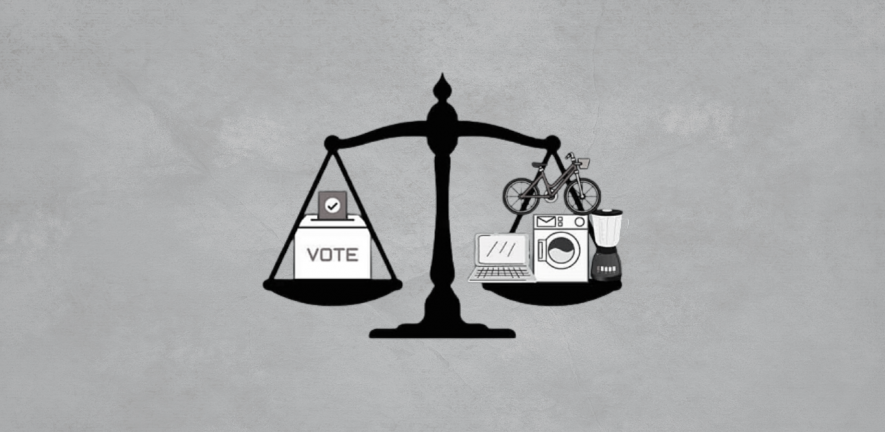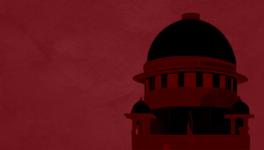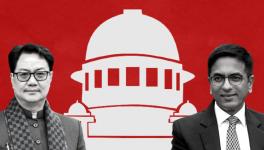Freebies Debate Highlights the Limits of Judicial Overreach

What is the ‘freebies’ debate about?
OVER the last few months, what the remit of political campaign promises should be has remained constant in public discourse. This increased attention for election promises is partly the result of a public interest litigation (‘PIL’) filed at the Supreme Court in January by politician and lawyer Ashwini Kumar Upadhyay. This PIL contests the practice of promising “irrational freebies” by political parties from public funds during election campaigns and the use of public funds for the distribution of the promised freebies by the elected government.
The petition claims that the promise of freebies unfairly influences the electorate, and the distribution of irrational election freebies from public funds not meant for “public purpose” violates Article 282 of the Constitution. The next hearing in this matter is expected to come up on October 21 (based on information sourced from the official website of the Supreme Court of India).
Also read: Supreme Court likely to form a committee to examine freebies, even as counsel advice caution
What are election freebies?
The ongoing controversy illustrates the difficulty and potential disagreements in determining what election freebies are. Generally speaking, freebies can mean anything given out for free, especially to attract support or interest in something. The term “election freebies” is being extensively used in India to describe (as well as disapprove) certain welfare schemes promised for free (or at a bare minimum cost) by political parties during their election campaigns to attract voters and delivered out of the public funds when they form the government (especially at the state level). Of course, this is not a precise definition of the term – election freebies remain bereft of one.
This PIL seeks a direction against political parties that promise election freebies out of the public fund during election campaigns to attract voters, which raises a rather fundamental question – are not all promises made during an election campaign aimed at attracting votes?
This PIL seeks a direction against political parties that promise election freebies out of the public fund during election campaigns to attract voters, which raises a rather fundamental question – are not all promises made during an election campaign aimed at attracting votes? The answer to this inevitably requires a detailed theoretical discussion on political parties and election campaigns.
Political parties are central to democratic governance, acting as a bridge between the people and their governments. Simply put, every political party goes out for long, expensive, and exhausting election campaigns with the eventual aim of attracting voters. Persuading voters is the essence of political campaigns in an electoral democracy. Political parties, as vehicles for future governments, prepare policy packages drawing upon their interaction with the electorate and sell these to persuade the voters during election campaigns. This, in all certainty, is done to get people to vote for them.
On their part, voters are largely aware of what they do or do not get when they choose a party to form the government. Essentially, this forms a policy bargain between the people and the government they choose. Given that, it is arguable how far courts could be useful in determining the precise and legitimate remit of election promises.
Freebies versus public policy: How does the Constitution come into play?
Freebies are welfare measures promised and delivered out of public funds. The funds for these supposedly controversial welfare schemes (which may include the distribution of items such as free laptops, smartphones, bicycles and scooters for students, LPG cylinders and free transportation for women, cash and gifts, among other things) are drawn out of the Consolidated Fund of the state (Article 266 read along with Article 162) via Article 282 of the Constitution.
Any welfare scheme designed by the Union or the states which furthers the DPSPs and the Preamble could be said to further a public purpose, and expenditure to that end could be termed rational.
Concerns surrounding the uninhibited use of Article 282 to effectuate centrally sponsored schemes have persisted for several years. Article 282 is now in question for channelling grants for state welfare schemes, christened as “freebies.” Article 282 enables the Union and the state to make discretionary grants (expenditures) on any subject for “public purpose,” even if the Union or the state is not empowered to make laws for such a public purpose under the scheme of the Seventh Schedule of the Constitution. Thus, for an Article 282 expenditure to be good in law (presumably, a warranted welfare expenditure), it must strictly be for a “public purpose.”
As a result, any expenditure on state government schemes (freebies) not made for a public purpose under Article 282 would be an irrational expenditure (presumably, irrational election freebies). Therefore, for determining whether an expenditure is a warranted or an irrational freebie, determining what constitutes public purpose under Article 282 becomes germane.
The Constitution, however, does not provide an explanation for the term “public purpose”. In 2010, a five-judge Constitution bench of the Supreme Court in Bhim Singh versus Union of India gave the term a broad interpretation to mean anything designed to promote the purpose underlying the Directive Principles of State Policy (‘DPSPs’) and the Preamble of the Constitution. Following from this, any welfare scheme designed by the Union or the states which furthers the DPSPs and the Preamble could be said to further a public purpose, and expenditure to that end could be termed rational.
Also read: Freebie debate: The best way forward
What has the Supreme Court previously held about election freebies?
This PIL is not the first time when the Supreme Court is dealing with election freebies.
The issue of their unrestricted use was first brought before the Supreme Court in 2013. In S. Subramaniam Balaji versus State of Tamil Nadu, a division bench of the Supreme Court heard a challenge to the practice of promising and distributing freebies (like colour TV sets, grinders, mixies, fans, laptops, cash, and so on) by political parties in Tamil Nadu. The court held that such promises in an election manifesto could not be construed as corrupt practices under Section 123 of the Representation of the People Act, 1951. The court linked “State largesse” to the DPSPs, and ruled that it is for the elected government to decide on the policy to implement these principles. It maintained that it could not interfere in policy decisions unless there was a clear violation of some statutory or constitutional provision, or the policy in question was shockingly arbitrary in nature.
Notably, in Ashwini Kumar Upadhyay, this division bench judgment in Subramaniam Balaji is under reconsideration before a three-judge bench of the Supreme Court. Interestingly, and as mentioned above, the five-judge Constitution bench ruling in Bhim Singh also linked “public purpose” to the DPSPs. In Bhim Singh, the Supreme Court also maintained that judicial interference is permissible only when the actions of the government are unconstitutional, and not when such actions are not wise or that the extent of expenditure is not for the good of the State. All such policy questions must be debated and decided in the legislature instead of the court.
Welfare schemes made by the Union or state governments, for the furtherance of principles underlying the Constitution, is a policy matter, best suited for determination by policymakers. These may be classic policy questions, best left outside the scope of judicial intervention unless there is a clear violation of an extant law or provision of the Constitution.
In Subramaniam Balaji, the court, however, agreed that freebies alter the level-playing field for candidates contesting the election and, in the absence of any enactment governing election manifestos, directed the Election Commission of India (‘ECI’) to frame guidelines to regulate election promises. These guidelines now form part of the Model Code of Conduct (‘MCC’) for the guidance of political parties during elections.
What is the possible way forward?
Under the constitutional scheme, what constitutes warranted and unwarranted public expenditures by either the state or the Union governments depends on what can be accommodated into the definition of public purpose at that time. Admittedly, it is difficult (if not impossible) to exhaustively define public purpose. Welfare schemes made by the Union or state governments, for the furtherance of principles underlying the Constitution, is a policy matter, best suited for determination by policymakers. These may be classic policy questions, best left outside the scope of judicial intervention unless there is a clear violation of an extant law or provision of the Constitution.
Following the decision in Subramaniam Balaji, the ECI has already framed guidelines for election manifestos in the MCC to be followed by political parties. Strict implementation of these guidelines would perhaps resolve a few concerns around election promises.
Political parties are a bridge between the electorate and the government. Although one of the most important institutions of Indian democracy, political parties remain largely unregulated. Thus, a necessary first step toward attaining a better democratic order in India could be to have a framework for the regulation of political parties for securing transparency and accountability in electoral democracy. Their regulation would also ensure that such matters concerning the regular operation of political parties do not have to end up at the doorstep of the judiciary, and could perhaps be resolved through other means.
The remit of election freebies could, potentially, prompt a discussion around what such a framework for political party regulation in India can be.
Get the latest reports & analysis with people's perspective on Protests, movements & deep analytical videos, discussions of the current affairs in your Telegram app. Subscribe to NewsClick's Telegram channel & get Real-Time updates on stories, as they get published on our website.
























